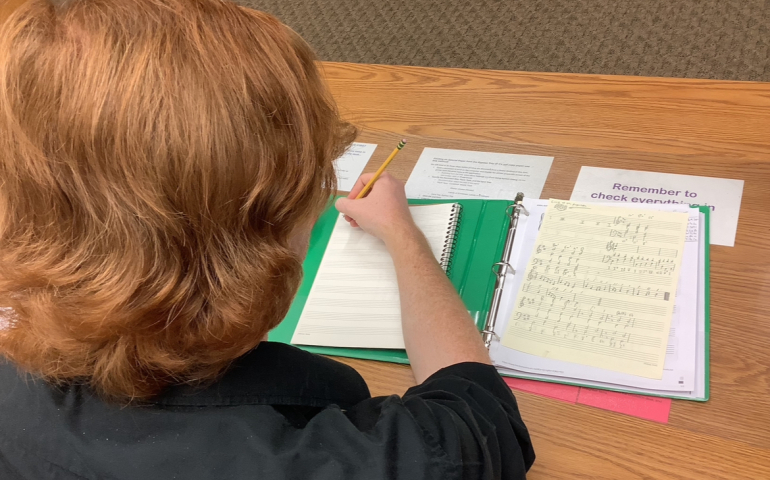At this point in the school year, everything involving learning is in full swing. What this means for students is that more and more tests are popping up in their classes. For many students at SNU, myself included, it is not just about the grades we are getting but the dreadful presence of tests themselves. This is for a variety of reasons: we simply do not like them, or we feel that we are not good test takers. Even though this can be a problem, there are a few different strategies students can use as a way to help remedy some of this anxiety.
1. Pay Attention and Take Notes
As simple as this tip may be, it is a cornerstone for remembering important information for when tests roll around. Comprehending information when it is first introduced is key to remembering it down the road. This does not mean that students have to hang onto every word the professor is saying, but whenever new topics are introduced in class, it is necessary to pay attention so as not to stress yourself out when it is the night before the big test.
2. Go Talk to Your Professors
This may be a shocking claim, but your professors are actually great sources for test preparation! More often than not, they will post study guides for these exams on the class Canvas page, allowing students to see the exact material that will be covered on the test, whether it be a list of topics to look over or a series of questions that will be asked. In addition to this, by the time it is close to the end of the semester and the final is on the horizon, some professors will go over its contents in the classes leading up to it. Our professors are an underrated and valuable resource, and they will always do everything they can to help students do well on their tests.
3. Study When You Do Not Necessarily Need To
When talking to Melany Kyzer, Ph.D., a professor in the Department of Cultural Communications Studies, she suggested that students study “at least 30 minutes each day after each class,” so that by the time the night before the test rolls around, students would have already put hours of studying in leaving the night before to review. I, along with many others, do not want to study unless I have to, but something like this could be remarkably beneficial to those who spend hours and hours cramming the night before exams, whether it is the first test of the year or the semester final.
4. Get a Good Night’s Sleep the Night Before
This is something that many people often skip over–and not just when preparing for exams. Getting a good night’s sleep allows us to function better in general, and that includes increasing our awareness and ability to process information as students. Gwen Hackler, Ph. D., one of the professors in SNU’s English department, had a few words to say on this matter, expressing that “distributed encounters when learning new material” are incredibly valuable. These are periods of sleep in between study sessions, and they can lead to your brain having time “to start making sense out of the information.” I do recognize that, of all the tips present here, this may be the one that falls on more deaf ears than any other, but beginning the practice of sleeping for even thirty more minutes than normal may go a long way to helping us be more alert for exams.
5. Know Yourself and Relax If You Need It
This may be different for everyone, but if students feel they need to destress a little bit before cracking down in the final weeks of the semester, they have no reason not to take the time and do just that. When talking to Kyzer, one thing that she said helped her a lot when she was a college student was to “take an entire play day to relax and have fun” before she began to study for her finals. Granted, I would not recommend playing around and not studying for too long before finals, but as something to detox from all of the stressful work students have had before the big final push, it can be quite the remedy.
Tests are things that will happen in every college class, and generally speaking, they will be stressful and hard, no matter what the subject is. However, these tools can help students have less anxiety going into them, as well as maybe even improve their exam scores in whatever subject is being covered. College students already live lives that are plenty stressful and preparing for these tests prior to the night before they happen can go a long way to relieve a little bit of your troubles.
Photo by Jacob Mash
